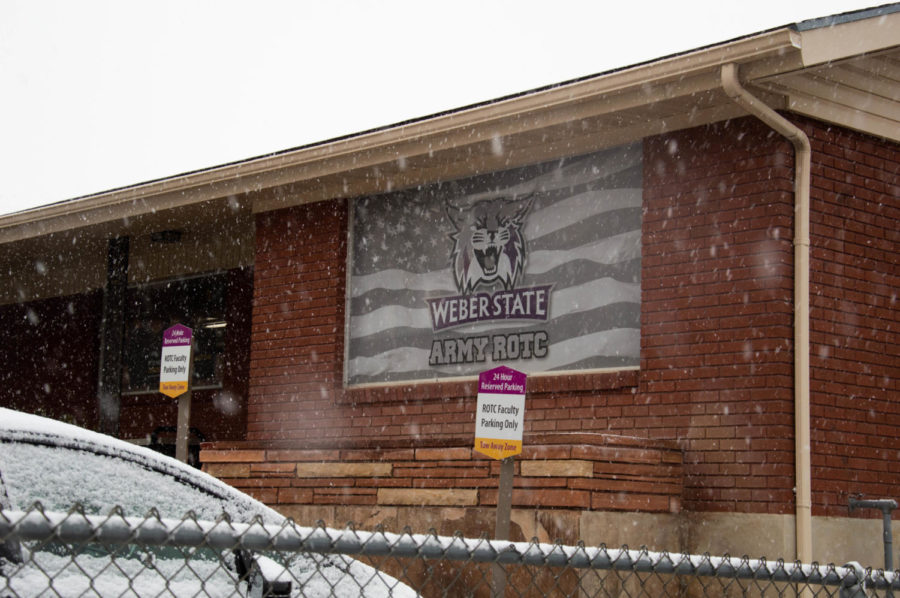As Randon Kerr examined his medical witness, Matthew Glover, about whether or not Mr. Allen was medically sound enough to go scuba-diving at the time of his death, Jerreed Ivanich stood up from his desk and said, “I object!”
Although Rachel Robison-Greene, the coach of Weber State University’s mock trial team, said WSU has been known to be really competitive in mock trial in the past, some people haven’t heard of mock trial at all.
Mock trials are a competition with four rounds of judging. The team receives a case book outlining a fictional case. These case books contain all the information that would be used in a real trial. The team studies and learns each part of this trial and formulates strategies to defend each side.
“One thing that is great about this competition is it does give us some feel of what court actually is like,” said Mannie Alvarado, a WSU senior. “We use the same procedures they use in a real courtroom.”
Alvarado said the team spends all year on the same case, from August until the national tournament in April. The team plays all of the people in the trial, including attorneys and witnesses.
Glover, a WSU senator and mock trial team member, said the case this year is a civil case involving mystery and death. Glover said he usually plays a witness, and sometimes more than one witness in the same mock trial.
“It’s actually really complex,” said Jarreed Ivanich, a WSU senior and team member. “Like, the medical witnesses have to learn a lot of terminology that they are probably not familiar with because most of us are in the law field . . . so some of the terminology and the equations and math are really complex. As far as I’m aware, it’s pretty accurate to what actually happens in those fields.”
Robison-Greene said the information in the case book has supporting evidence for both sides of the case, so the team has to know how to present both sides.
“The tournaments are all four rounds,” Glover said. “So two rounds we’ll play the plaintiff side, and the other two we’ll play the defense.”
The competition is judged on a ballot system. The judges rate various events in the trial like the opening statements, the three witnesses being directed and cross-examined, and the closing statements.
“It’s a really competitive activity and the teams you go up against are really well prepared,” Robison-Greene said.
Because of the dedication of the other teams, Alvarado said, the people involved in mock trial at WSU have to be committed to doing a lot of studying.
“This is a huge time commitment,” Alvarado said. “We’re here Monday, Wednesday, Friday for three-plus hours and then at home.”
The team members all had a different story of how they became involved in mock trial, from having a general competitive nature to wanting to know if they would enjoy a career in law to just stumbling upon it.
“I went through the course offerings, looking for a few extra credits to fill in,” said Kerr, one of the newest members of the team. “I saw mock trial, and so I got into it . . . and now I’m about as excited as I can be to be a part of the team.”
The mock trial team used to compete almost every month, Alvarado said, but this year it wants to be more focused going into competitions. The team has already competed once this year, and will compete in Waco, Texas, next week.
“We are a bunch of nerds that stick to ourselves and have our nose in a case book,” Ivanich said.
Alvarado said the teams they go against are really good, but he thinks they might only be good at mock trial and not real-life trials.
“This particular group has kind of a real-person style rather than a memorized, stiff, scripted style,” said Robison-Greene about WSU’s mock trial team versus other mock trial teams.
Robison-Greene said she used to be part of the team back when she was in school, and now that she is the coach, she thinks this year’s team has got what it takes.
“We’re a smaller school,” Alvarado said. “We’re a smaller team, but we can compete with any school in the nation.”








